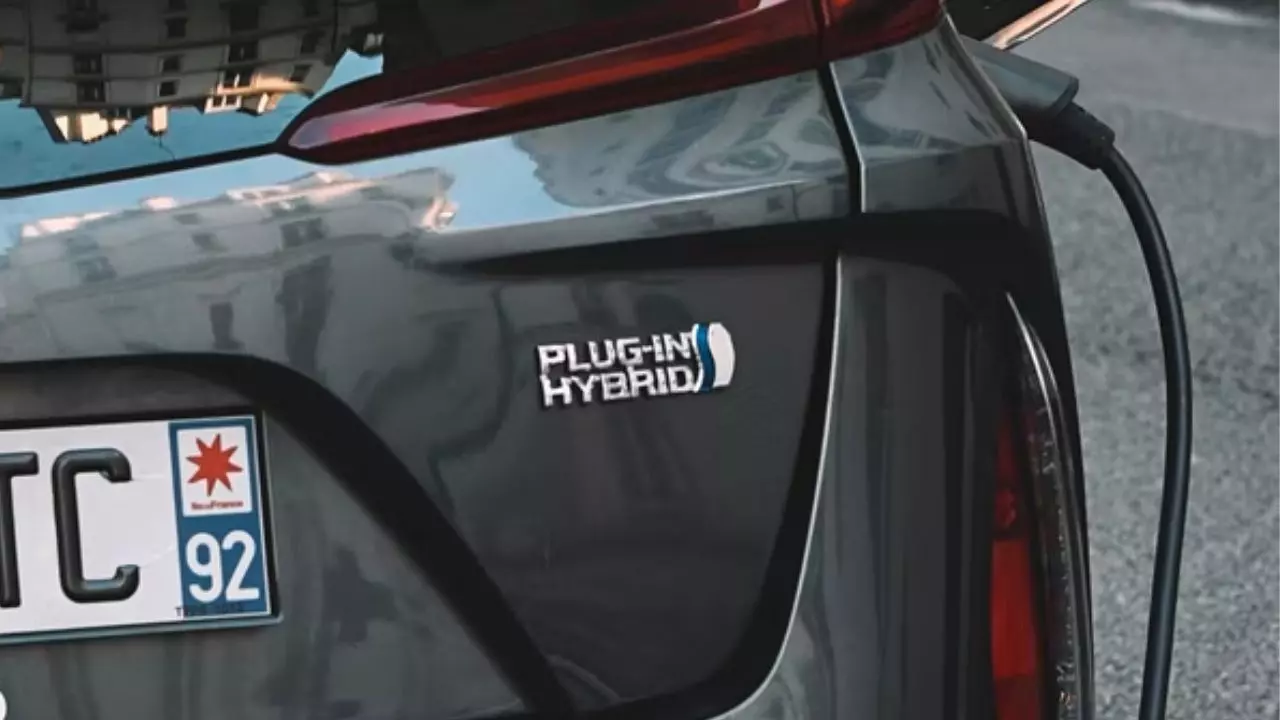Are hybrids good for the environment? As more and more people become concerned about the impact of transportation on the planet, this question has become increasingly important. Hybrid cars, with their combination of electric and gasoline power, promise to be more eco-friendly than traditional gasoline cars. But do they live up to the hype? In this post, we’ll explore the environmental impact of hybrid cars, compare them to gasoline cars, and highlight the benefits of eco-friendly vehicles. By the end, you’ll have a clear understanding of whether hybrid cars are truly good for the environment and whether they’re a smart choice for your lifestyle. So, let’s dive in and uncover the surprising facts about hybrid cars and their impact on the environment.
The Basics: How Hybrid Cars Work and Why They’re Relevant

Hybrid cars have become a popular choice for drivers seeking an eco-friendly option that’s more efficient than traditional gasoline cars. Since the debut of the Honda Insight in North American dealerships in the 2000 model year, hybrid technology has become commonplace. In fact, many common models now offer a hybrid powertrain. But how do hybrid cars work and why are they relevant?
Hybrid cars combine a gasoline engine, an electric motor, and a battery pack. The electric motor drives the car at low speeds, typically up to 30 mph, or under low power demands. The gas engine kicks in at higher speeds where it’s more efficient and makes most of its power, or when you need to accelerate quickly or climb hills. Hybrids can also drive on electric power alone for short distances, but often the engine and motor(s) operate together.
The gas engine recharges the car’s battery, so there’s no need to plug the car in. Hybrids also have regenerative brakes that capture momentum to create electricity as the car slows down or coasts. That electricity is used to recharge the battery, whereas a regular car’s brakes just create friction that turns into unusable heat.
Hybrids’ emissions are up to a third lower than comparable nonhybrids, making them a more eco-friendly option. They utilize energy that would otherwise be wasted, which increases efficiency. Hybrids can be filled up at any gas station and don’t need to be plugged in. In fact, the gas engine’s supplement to the electric motor means the gas engine doesn’t need to be as big to achieve an overall combined horsepower rating that’s comparable to a gas-only car.
Are hybrids good for the environment? According to CR’s calculations, hybrids’ emissions are up to a third lower than comparable nonhybrids. Hybrid cars are also equipped with regenerative brakes that capture momentum to create electricity as the car slows down or coasts. That electricity is also used to recharge the battery. By comparison, a regular car’s brakes just create friction that turns into unusable heat. Although hybrids are more efficient overall than their gas-only counterparts, fuel economy is higher in city driving, where the electric motor has more of an impact than on long highway stretches at higher speeds.
There are different types of hybrid cars, including mild hybrids and rechargeable hybrids. Mild hybrids take some of the strain from the combustion engine to reduce its fuel consumption, while rechargeable hybrids have a higher-capacity rechargeable battery and can be driven in all-electric mode for a few kilometers. They offer more dynamic and flexible performance, with lower fuel consumption for city driving.
Hybrid Cars vs. Gasoline Cars: Which is More Eco-Friendly?

Are hybrids good for the environment? The answer is yes! Hybrid cars are a more sustainable and eco-friendly transportation option than conventional gasoline cars. Hybrids reduce greenhouse gas emissions by emitting only a portion of the gasoline-related emissions when charged with renewable energy sources. This means that if you charge your hybrid with clean energy sources like solar or wind power, you can further enhance its sustainability. However, if you charge it with fossil-fuel-derived electricity, you can create ecological challenges.
Hybrid cars are more fuel efficient than gasoline cars, meaning that you can save money on gas over time. They are also designed to reduce regular wear and tear on an engine, requiring less maintenance and allowing for longer travel without servicing. While maintenance costs for hybrid vehicles are lower, their upfront payments are high.
Gasoline cars have a low cost of manufacturing, making them the most cost-efficient option compared to their hybrid and electric counterparts. They also come in a wide range of colors, models, and engine types, all at cost-friendly prices. Unlike charging stations for electric cars that are scarce and not available at all areas, refilling stations for fuel can be found almost everywhere. Therefore, when driving a gas-powered car, you never have to worry about running out of fuel, making them very convenient.
However, gasoline cars have a larger carbon footprint than hybrid cars, releasing nearly 4.6 metric tons of carbon dioxide annually. The size of a hybrid’s carbon footprint relies on its power source, which means that charging it with renewable energy sources can further enhance its sustainability.
In terms of performance, gasoline cars tend to have better performance than hybrids, although this is changing as hybrid technology improves. Hybrids, on the other hand, offer a significant benefit in reducing “range anxiety” as they have a gasoline tank as a backup support when electric charging stations are out of range.
Overall, when comparing hybrid cars vs gasoline cars, hybrid cars have less of an impact on the environment, making them a more eco-friendly choice. However, when it comes to convenience and cost-efficiency, gasoline cars may have an advantage. It’s important to weigh the advantages and disadvantages of each option and consider your personal sustainability goals before deciding which one to choose.
Hybrid Car Emissions: What You Need to Know to Reduce Your Carbon Footprint

Hybrid cars have become increasingly popular in recent years, and for a good reason. They offer a great solution for drivers who want to reduce their carbon footprint while still enjoying the convenience and flexibility of owning a car. In this article, we’ll explore the environmental impact of hybrid cars, their benefits, and how they compare to gasoline cars.
One of the most significant benefits of hybrid cars is their reduced carbon emissions. On average, a hybrid car can emit up to 46% less greenhouse gas than a regular gasoline car. By combining electric batteries with traditional fuels, hybrid cars offer an attractive option for those who want to reduce their carbon footprint without taking risks.
Hybrid cars run on both gas and electricity, reducing the amount of fuel needed to power the vehicle. In addition, hybrid cars use regenerative braking technology, which captures and stores energy usually lost when braking. This technology helps the car to self-sustain and reduce the overall use of gasoline products like motor oil.
When compared to gasoline cars, hybrid cars have better fuel efficiency, resulting in lower emissions. Additionally, hybrid cars tend to have better mileage, which means they can go farther on a single tank of gas. This makes them an excellent choice for people who want to reduce their environmental impact while still enjoying the convenience of owning a car.
Hybrid cars are just one type of eco-friendly vehicle or green car. There are also electric cars, which emit zero emissions, and hydrogen fuel cell vehicles, which emit only water vapor. However, hybrid cars offer a good balance between the two, making them a popular choice for drivers who want to reduce their carbon footprint without sacrificing convenience.
Eco-Friendly Vehicles 101: Exploring the World of Green Cars

Green cars, also known as eco-friendly vehicles, are designed to reduce the environmental impact of transportation. One type of green car that’s becoming increasingly popular is the hybrid car, which combines a gasoline-powered engine with an electric motor. But are hybrids good for the environment? Let’s take a closer look at the environmental impact of hybrid cars.
Hybrid car benefits go beyond fuel efficiency. Hybrid cars use less fuel than traditional gasoline cars, so they emit less carbon dioxide (CO2) into the atmosphere. CO2 is a greenhouse gas that contributes to climate change. According to a report by MIT, over the course of their driving lifetimes, hybrid cars will create fewer carbon emissions than gasoline-burning cars under nearly any conditions. While the manufacturing process of a new hybrid car can produce around 80% more emissions than building a comparable gas-powered car, the major source of emissions from hybrid cars comes from the energy used to charge their batteries.
Hybrid car technology is designed to be more fuel-efficient than traditional gasoline engines. By using both an electric motor and gasoline engine, hybrids can achieve better fuel efficiency and mileage than traditional gasoline cars. Hybrids also have regenerative braking, which means that energy is recaptured and stored in the battery when the brakes are applied. This stored energy can then be used to power the electric motor.
Hybrid cars vs gasoline cars is an ongoing debate, but it’s clear that hybrid cars emit fewer emissions than gasoline cars. According to the US Department of Energy, using the nationwide average of different energy sources, hybrid cars emit 6,258 lbs. of CO2 per year, compared to 11,435 lbs. for gasoline vehicles. While some emissions are created in the process of building and charging hybrid cars, their lower emissions during use make them a greener alternative.
Hybrid car emissions are also lower than those of fully electric vehicles (EVs), which may not emit greenhouse gases from their tailpipes but create emissions in the process of building and charging their batteries. However, EVs are clearly a lower-emissions option than cars with internal combustion engines. The major source of EV emissions is the energy used to charge their batteries, which varies greatly based on location and energy source. Nevertheless, EVs are poised to become even greener as more countries add more clean energy to their energy mix.
Hybrid Car Technology: Innovations Driving the Future of Sustainable Transportation

As the world looks for ways to reduce greenhouse gas emissions, hybrid cars have become increasingly popular. With their combination of an internal combustion engine and an electric motor, these vehicles offer numerous benefits over traditional gasoline cars. In this subsection, we’ll explore hybrid car technology, including how it works, its environmental impact, and its potential to drive the future of sustainable transportation.
Hybrid Car Benefits
One of the primary benefits of hybrid cars is their fuel efficiency. By using both gasoline and electric power, hybrids can achieve much better mileage than gasoline-only cars. This efficiency not only saves drivers money at the pump but also reduces the environmental impact of driving. In fact, many hybrid cars today are rated at over 50 miles per gallon, making them some of the most efficient vehicles on the road.
Hybrid Car Technology
Hybrid cars are powered by both an internal combustion engine and an electric motor. The engine runs on gasoline, while the motor is powered by a rechargeable battery pack. The battery pack is recharged through regenerative braking, which captures energy that is normally lost during braking and stores it for later use.
Hybrid cars also use advanced technologies such as start-stop systems, which turn off the engine when the car is idle, and continuously variable transmissions, which allow for smoother acceleration and better fuel efficiency.
Environmental Impact of Hybrid Cars
Many people wonder, “Are hybrids good for the environment?” The answer is yes. While hybrids still produce emissions from their gasoline engines, they produce much fewer emissions than traditional gasoline cars. Additionally, the electric motor in hybrids produces no emissions when it’s being used, meaning that hybrid cars are much cleaner and more eco-friendly than gasoline-only cars.
Hybrid cars also have the potential to drive the future of sustainable transportation. As more people switch to hybrid and electric vehicles, demand for renewable energy sources will increase, leading to a shift away from fossil fuels. This shift will have a significant impact on reducing greenhouse gas emissions and slowing the effects of climate change.
Hybrid Car Efficiency and Mileage
Hybrid cars are some of the most efficient vehicles on the road today. Thanks to their combination of gasoline and electric power, they can achieve much better mileage than traditional gasoline cars. This efficiency not only saves drivers money at the pump but also reduces the environmental impact of driving.
Wrap-Up
In conclusion, while hybrids do offer some environmental benefits, they are not a silver bullet solution to our environmental challenges. While they may produce less emissions than traditional gasoline-powered cars, their production and disposal still have negative impacts on the environment. Furthermore, hybrids still rely on fossil fuels and their batteries require rare and often environmentally damaging materials.
It is important to remember that a shift towards sustainable transportation requires more than just buying a hybrid car. We must also consider the ways we use our cars and explore alternative modes of transportation like public transit, biking, and walking. In addition, the development of more environmentally-friendly technologies like fully electric or hydrogen fuel cell vehicles may offer even greater benefits for the environment. Ultimately, reducing our impact on the environment requires a comprehensive approach that considers the entire lifecycle of our transportation choices.